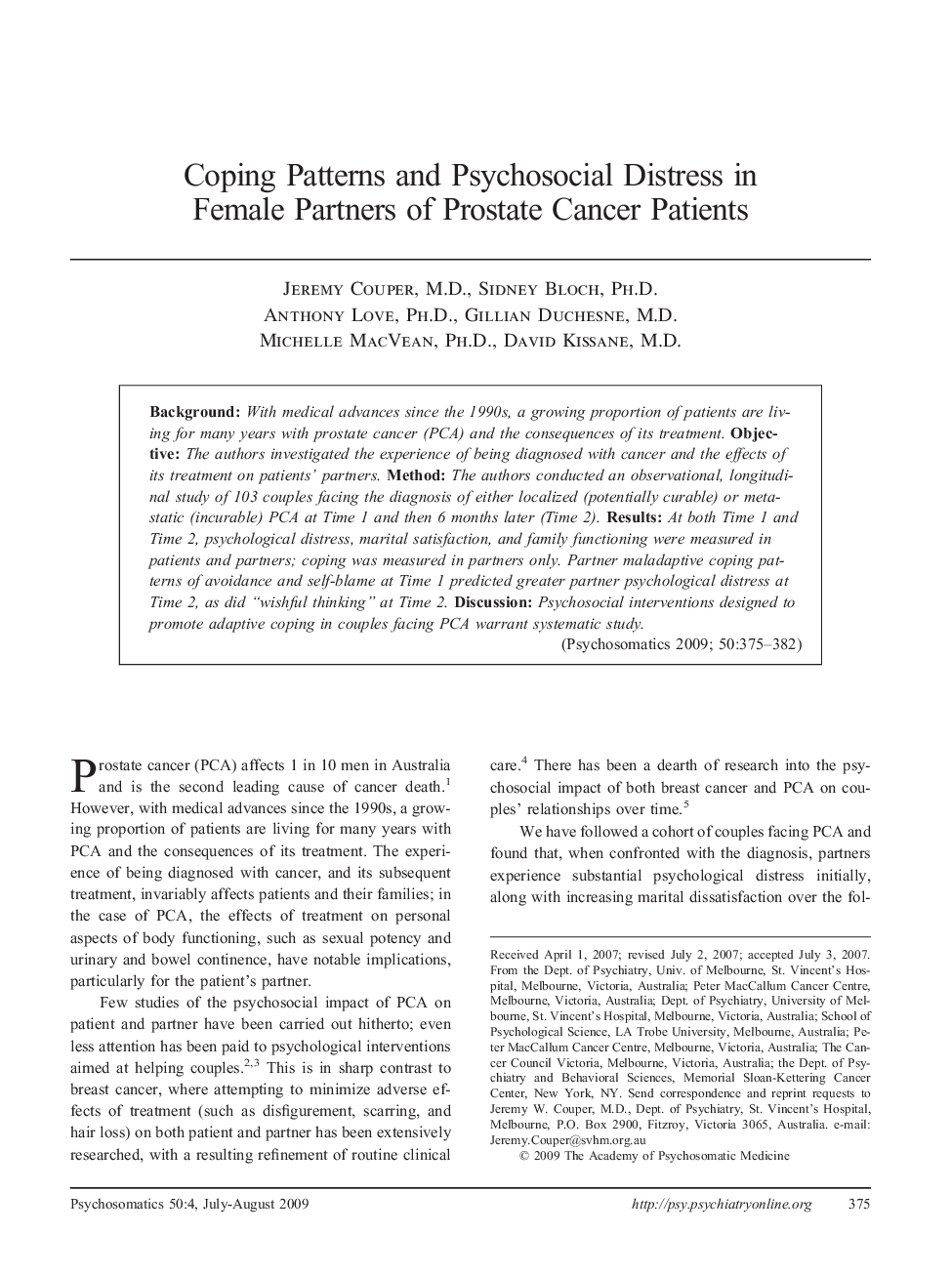| Article ID | Journal | Published Year | Pages | File Type |
|---|---|---|---|---|
| 338737 | Psychosomatics | 2009 | 8 Pages |
BackgroundWith medical advances since the 1990s, a growing proportion of patients are living for many years with prostate cancer (PCA) and the consequences of its treatment.ObjectiveThe authors investigated the experience of being diagnosed with cancer and the effects of its treatment on patients’ partners.MethodThe authors conducted an observational, longitudinal study of 103 couples facing the diagnosis of either localized (potentially curable) or metastatic (incurable) PCA at Time 1 and then 6 months later (Time 2).ResultsAt both Time 1 and Time 2, psychological distress, marital satisfaction, and family functioning were measured in patients and partners; coping was measured in partners only. Partner maladaptive coping patterns of avoidance and self-blame at Time 1 predicted greater partner psychological distress at Time 2, as did “wishful thinking” at Time 2.DiscussionPsychosocial interventions designed to promote adaptive coping in couples facing PCA warrant systematic study.
